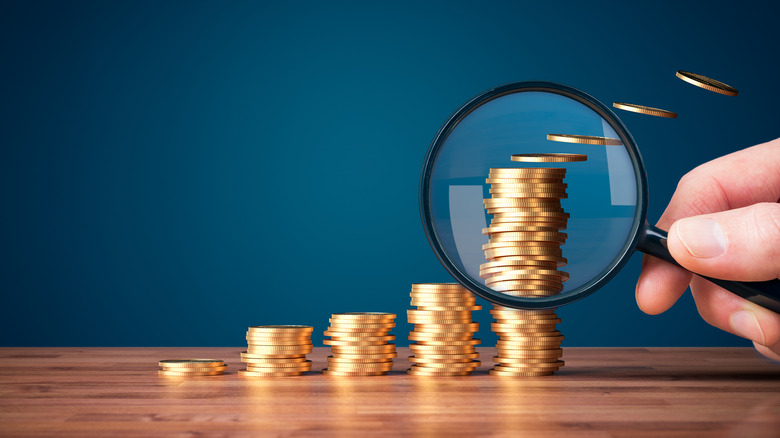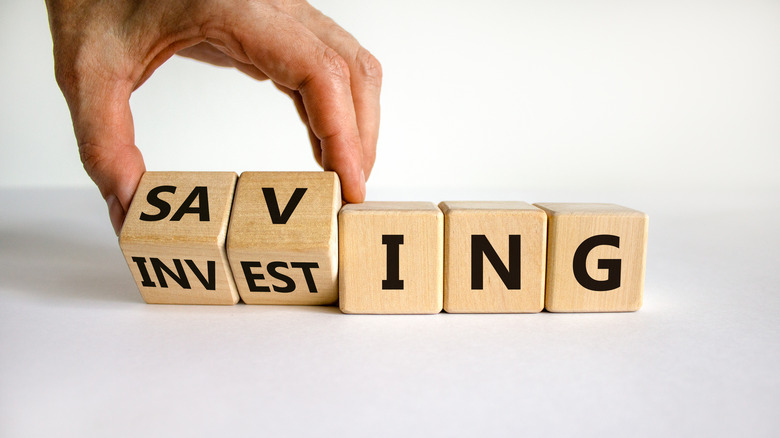How Much Money Should You Realistically Have Saved By 30?
Saving money throughout your life can be a great way to make sure you're taking care of your future self. Whether this means putting aside a little money for a nice vacation, tucking away funds for a down payment on a house, or for early retirement, it's never too soon to begin your money-saving strategy. Because everyone's in different situations financially, there's no concrete path you should take if you want to meet a certain savings goal. If, for example, your goal is to be able to put away $20,000, then it may be reached either faster or slower depending on many factors, including the income you're making at your job, whether or not you have children, where you live, and especially how you choose to live.
With a proper financial approach and smart investing plan, saving money at an early age can help you not only bank for now, but also grow your investment over time to actually make more money with the help of high-interest savings. However, no matter whether you're working part time as a server or full time as a doctor, there's at least a certain percentage of savings you should have saved by the time you're 30.
This percentage of your earnings should go toward your savings
If you want to be able to have a decent amount saved by the time you're 30, it can help by first dividing up your monthly income into three categories. Following a 50/20/30 strategy, as detailed in the book "All Your Worth: The Ultimate Lifetime Money Plan," can help you begin the path to investing in your future. The way it works is that 50% of your after-tax monthly income should be allocated for your expenses, such as mortgage or rent, hydro, utilities, and so on. Then 20% of your earnings should go toward any of your high-interest debts, savings, as well as emergency funds. Finally, the remaining 30% can be put toward your wants, such as subscriptions for television and internet or anything that may seem as nonessential.
By the time you reach the age of 30, you should have saved at least one year's worth of your salary. This could mean different numbers to different folks. For instance, if you make $30,000 a year by the time you're 30, that amount should already be put away in a savings account. However, if you don't have this amount saved already, that's no reason to stress out or feel like you're falling behind. As long as you're putting something away, it's a start. Let's look at some ways to earn money for savings.
What to do to save for your 30s
Saving money doesn't have to be daunting or scary. In fact, with a little self-discipline, even putting away a small amount every month can put you on a good road for the future. Doing your research and investing in the right kinds of avenues can greatly increase your success in earning decent savings. The real trick is being able to set aside time on a continual basis to focus on your plan and make the effort to invest in yourself for the future.
When you invest consistently in a variety of different ways, such as putting money toward a tax-advantaged retirement account, investing in the stock market a little bit at a time, as well as putting money aside into a high-interest savings account, you'll find your money can start earning money for you. If you're able to start thinking seriously about your finances in your 20s, then you can ideally save the recommended amount by the time your 30s hit. From there — once you've been in the investing game for a while and are feeling more comfortable with your finances — you can hopefully increase your monthly contributions and maximize the potential for more savings.


